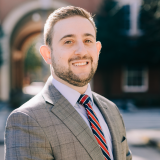1. The provision in the first section of the Fourteenth
Amendment to the Constitution of the United States which prohibits
a state from denying to any person the equal protection of the laws
contemplates the protection of persons and classes of persons
against unjust discriminations by a state; it does not relate to
territorial or municipal arrangements made for different portions
of a state.
2. A state is not thereby prohibited from prescribing the
jurisdiction of its several courts, either as to their territorial
limits or the subject matter, amount, or finality of their
respective judgments or decrees.
3. Each state has full power to make for municipal purposes
political subdivisions of its territory and regulate their local
government, including the constitution of courts, and the extent of
their jurisdiction.
4. A state may establish one system of law in one portion of its
territory and another system in another, provided always that it
neither encroaches upon the proper jurisdiction of the United
States nor abridges the privileges and immunities of citizens of
the United States, nor deprives any person of his rights without
due process of law, nor denies to any person within its
jurisdiction the equal protection of the laws in the same
district.
5. By the Constitution and laws of Missouri, the Saint Louis
Court of Appeals has exclusive jurisdiction in certain cases of all
appeals from the circuit courts in Saint Louis and some adjoining
counties; the Supreme Court has jurisdiction of appeals in like
cases from the circuit courts of the remaining counties of the
state.
Held that this adjustment of appellate jurisdiction
is not forbidden by anything contained in the said amendment.
Page 101 U. S. 23
This writ of error was brought by the state of Missouri on the
relation of Frank J. Bowman to reverse the judgment of the Supreme
Court of Missouri refusing to issue a mandamus to Edward A. Lewis,
Charles S. Hayden, and Robert A. Bakewell, Judges of the Saint
Louis Court of Appeals. The object of the mandamus was to compel
the latter court to grant his application for an appeal to the said
Supreme Court from a judgment of said court of appeals affirming a
judgment of the Circuit Court of Saint Louis County removing
Bowman, a resident of that county, from the practice of law in the
state, he having by the verdict of a jury been found guilty upon
charges preferred against him by the committee of prosecution of
the bar association.
Wagner's Missouri Statutes, c. 12, p. 198, title "Attorneys at
Law," contains the following provisions:
"SEC. 6. Any attorney or counselor at law who shall be guilty of
any felony or infamous crime, or improperly retaining his client's
money, or of any malpractice, deceit, or misdemeanor in his
professional capacity, may be removed or suspended from practice
upon charges exhibited and proceedings thereon had as herein after
provided."
"SEC. 7. Such charges may be exhibited, and proceedings thereon
had in the Supreme Court or in the circuit court of the county in
which the offense shall have been committed or the accused
resides."
"SEC. 8. The court in which such charges shall be exhibited
shall fix a day for the hearing, allowing a reasonable time, and
the clerk shall issue a citation accordingly, with a copy of the
charges annexed, which may be served in any county in this
state."
"SEC. 9. The copy of the charges and citation shall be served in
the same manner as a declaration and summons in civil actions, a
reasonable time before the return day thereof."
"SEC. 10. If the party served with citation shall fail to appear
according to the command thereof, obedience may be enforced by
attachment or the court may proceed
ex parte."
"SEC. 11. If the charges allege a conviction for an indictable
offense, the court shall, on the production of the record of
conviction, remove the person so convicted or suspend him from
practice for a limited time, according to the nature of the
offense, without further trial. "
Page 101 U. S. 24
"SEC. 12. Upon charges other than in the last section specified,
the court shall have power only to suspend the accused from
practice until the facts shall be ascertained in the manner
hereinafter prescribed."
"SEC. 13. If the charge be for an indictable offense and no
indictment be found, or, being found, shall not be prosecuted to
trial within six months, the suspension shall be discontinued,
unless the delay be produced by the absence or procurement of the
accused, in which case the suspension may be continued until a
final decision."
"SEC. 14. The record of conviction or acquittal of any
indictable offense shall in all cases be conclusive of the facts,
and the court shall proceed thereon accordingly."
"SEC. 15. When the matter charged is not indictable, a trial of
the facts alleged shall be had in the court in which the charges
are pending, which trial shall be by a jury; or if the accused,
being served with process, fail to appear, or appearing, does not
require a jury, by the court."
"SEC. 16. In all cases of conviction, the court shall pronounce
judgment of removal or suspension according to the nature of the
facts found."
"SEC. 17. In all cases of a trial of charges in the circuit
court, the defendant may except to any decision of the court and
may prosecute an appeal or writ of error in all respects as in
actions at law."
"SEC. 18. Every judgment or order of removal or suspension made
in pursuance of this chapter by the Supreme Court or by any circuit
court shall operate while it continues in force as a removal or
suspension from practice in all the courts of this state."
The Constitution of Missouri adopted Oct. 30, 1875, contains the
following provisions, art. 6, title "Judicial Department:"
"SEC. 1. The judicial power of the state, as to matters of law
and equity, except as in this Constitution otherwise provided,
shall be vested in a Supreme Court, the Saint Louis court of
appeals, circuit courts, criminal courts, probate courts, county
courts, and municipal corporation courts."
"SEC. 2. The Supreme Court, except in cases otherwise directed
by this constitution, shall have appellate jurisdiction only, which
shall be coextensive with the state, under the restrictions and
limitations in this constitution provided."
"SEC. 3. The Supreme Court shall have a general superintending
control over all inferior courts. It shall have power to issue
Page 101 U. S. 25
writs of habeas corpus, mandamus,
quo warranto,
certiorari, and other remedial writs, and to hear and determine the
same."
"SEC. 12. There is hereby established in the City of Saint Louis
an appellate court, to be known as the Saint Louis Court of
Appeals, the jurisdiction of which shall be coextensive with the
City of Saint Louis, and the Counties of Saint Louis, Saint
Charles, Lincoln, and Warren. Said court shall have power to issue
writs of habeas corpus, quo warranto, mandamus, certiorari, and
other original remedial writs, and to hear and determine the same,
and shall have a superintending control over all inferior courts of
record in said counties. Appeals shall lie from the decisions of
the Saint Louis Court of Appeals to the Supreme Court, and writs of
error may issue from the Supreme Court to said court, in the
following cases only: in all cases where the amount in dispute,
exclusive of costs, exceeds the sum of $2,500; in cases involving
the construction of the Constitution of the United States or of
this state; in cases where the validity of a treaty or statute of,
or authority exercised under, the United States is drawn in
question; in cases involving the construction of the revenue laws
of this state, or the title of any office under this state; in
cases involving title to real estate; in cases where a county or
other political subdivision of this state or any state officer is a
party, and in all cases of felony."
"SEC. 19. All cases which may be pending in the Supreme Court at
Saint Louis at the time of the adoption of this constitution which,
by its terms, would come within the find appellate jurisdiction of
the Saint Louis Court of Appeals shall be certified and transferred
to the Saint Louis Court of Appeals, to be heard and determined by
said court."
"SEC. 21. Upon the adoption of this constitution and after the
close of the next regular terms of the Supreme Court at Saint Louis
and Saint Joseph, as now established by law, the office of the
Clerk of the Supreme Court at Saint Louis and Saint Joseph shall be
vacated, and said clerks shall transmit to the clerk of the Supreme
Court at Jefferson City all the books, records, documents,
transcripts, and papers belonging to their respective offices
except those required by sec. 19 of this article to be turned over
to the Saint Louis Court of Appeals, and said records, documents,
transcripts, and papers shall become part of the records,
documents, transcripts, and papers of said Supreme Court at
Jefferson City, and said court shall hear and determine all the
cases thus transferred, as other cases."
"SEC. 27. . . . The Saint Louis Court of Appeals shall have
Page 101 U. S. 26
exclusive jurisdiction of all appeals from, and writs of error
to, the Circuit Courts of Saint Charles, Lincoln, and Warren
Counties, and the Circuit Court of Saint Louis County in special
term, and all courts of record having criminal jurisdiction in said
counties."
The statutes of Missouri provide that
"Every person aggrieved by any final judgment or decision of any
circuit court in any civil case, including cases of contested
elections, may make his appeal to the Supreme Court."
Act of Feb. 28, 1871; Wagn.Mo.Stat., sec. 9, p. 159.
"In all cases of final judgment rendered upon any indictment, an
appeal to the Supreme Court [District Court] shall be allowed the
defendant if applied for during the term at which such judgment is
rendered."
Gen.Stat.Mo., c. 215, sec. 1.
The Act of Feb. 16, 1877, provides that
"SEC. 1. Every person aggrieved by any final judgment or
decision of any circuit court or the Saint Louis Court of Appeals
may make his appeal to the Supreme Court in any civil case."
Acts of Legislature of Missouri, session 1877.
Page 101 U. S. 29
MR. JUSTICE BRADLEY delivered the opinion of the Court.
By the Constitution and laws of Missouri, an appeal lies to the
supreme court of that state from any final judgment or decree of
any circuit court, except those in the Counties of Saint Charles,
Lincoln, Warren, and Saint Louis, and the City of Saint Louis, for
which counties and city the Constitution of 1875 establishes a
separate court of appeal, called the Saint Louis Court of Appeals,
and gives to said court exclusive jurisdiction of all appeals from,
and writs of error to, the circuit courts of those counties and of
said city; and from this court (the Saint Louis Court of Appeals)
an appeal lies to the Supreme Court only in cases where the amount
in dispute, exclusive of costs, exceeds the sum of $2,500, and in
cases involving the construction of the Constitution of the United
States or of Missouri, and in some other cases of special character
which are enumerated. No appeal is given to the Supreme Court in a
case like the present arising in the counties referred to, or in
the City of Saint Louis, but a similar case arising in the circuit
courts of any other county would be appealable directly to the
Supreme Court.
The plaintiff in error contends that this feature of the
judicial system of Missouri is in conflict with the Fourteenth
Amendment of the Constitution of the United States because it
denies to suitors in the courts of Saint Louis and the counties
named the equal protection of the laws in that it denies to them
the right of appeal to the Supreme Court of Missouri in cases where
it gives that right to suitors in the courts of the other counties
of the state.
If this position is correct, the Fourteenth Amendment has a much
more far-reaching effect than has been supposed. It would render
invalid all limitations of jurisdiction based on the amount or
character of the demand. A party having a claim for only five
dollars could with equal propriety complain that he is deprived of
a right enjoyed by other citizens, because he cannot prosecute it
in the superior courts, and another might equally complain that he
cannot bring a suit for real estate in a justice's court, where the
expense is small and the proceedings are expeditious. There is no
difference in principle between such discriminations as these in
the jurisdictions
Page 101 U. S. 30
of courts and that which the plaintiff in error complains of in
the present case.
If, however, we take into view the general objects and purposes
of the Fourteenth Amendment, we shall find no reasonable ground for
giving it any such application. These are to extend United States
citizenship to all natives and naturalized persons and to prohibit
the states from abridging their privileges or immunities and from
depriving any person of life, liberty, or property without due
process of law and from denying to any person within their
jurisdiction the equal protection of the laws. It contemplates
persons and classes of persons. It has not respect to local and
municipal regulations that do not injuriously affect or
discriminate between persons or classes of persons within the
places or municipalities for which such regulations are made. The
amendment could never have been intended to prevent a state from
arranging and parceling out the jurisdiction of its several courts
at its discretion. No such restriction as this could have been in
view or could have been included in the prohibition that "no state
shall deny to any person within its jurisdiction the equal
protection of the laws." It is the right of every state to
establish such courts as it sees fit and to prescribe their several
jurisdictions as to territorial extent, subject matter, and amount,
and the finality and effect of their decisions, provided it does
not encroach upon the proper jurisdiction of the United States and
does not abridge the privileges and immunities of citizens of the
United States, and does not deprive any person of his rights
without due process of law nor deny to any person the equal
protection of the laws, including the equal right to resort to the
appropriate courts for redress. The last restriction, as to the
equal protection of the laws, is not violated by any diversity in
the jurisdiction of the several courts as to subject matter,
amount, or finality of decision if all persons within the
territorial limits of their respective jurisdictions have an equal
right, in like cases and under like circumstances, to resort to
them for redress. Each state has the right to make political
subdivisions of its territory for municipal purposes, and to
regulate their local government. As respects the administration of
justice, it may establish one system of courts for cities and
another for rural districts, one
Page 101 U. S. 31
system for one portion of its territory and another system for
another portion. Convenience, if not necessity, often requires this
to be done, and it would seriously interfere with the power of a
state to regulate its internal affairs to deny to it this right. We
think it is not denied or taken away by any thing in the
Constitution of the United States, including the amendments
thereto.
We might go still further and say with undoubted truth that
there is nothing in the Constitution to prevent any state from
adopting any system of laws or judicature it sees fit for all or
any part of its territory. If the State of New York, for example,
should see fit to adopt the civil law and its method of procedure
for New York City and the surrounding counties, and the common law
and its method of procedure for the rest of the state, there is
nothing in the Constitution of the United States to prevent its
doing so. This would not, of itself, within the meaning of the
Fourteenth Amendment, be a denial to any person of the equal
protection of the laws. If every person residing or being in either
portion of the state should be accorded the equal protection of the
laws prevailing there, he could not justly complain of a violation
of the clause referred to. For, as before said, it has respect to
persons and classes of persons. It means that no person or class of
persons shall be denied the same protection of the laws which is
enjoyed by other persons or other classes in the same place and
under like circumstances.
The Fourteenth Amendment does not profess to secure to all
persons in the United States the benefit of the same laws and the
same remedies. Great diversities in these respects may exist in two
states separated only by an imaginary line. On one side of this
line, there may be a right of trial by jury, and on the other side
no such right. Each state prescribes its own modes of judicial
proceeding. If diversities of laws and judicial proceedings may
exist in the several states without violating the equality clause
in the Fourteenth Amendment, there is no solid reason why there may
not be such diversities in different parts of the same state. A
uniformity which is not essential as regards different states
cannot be essential as regards different parts of a state, provided
that in each and all there is no infraction of the constitutional
provision. Diversities
Page 101 U. S. 32
which are allowable in different states are allowable in
different parts of the same state. Where part of a state is thickly
settled and another part has but few inhabitants, it may be
desirable to have different systems of judicature for the two
portions -- trial by jury in one, for example, and not in the
other. Large cities may require a multiplication of courts and a
peculiar arrangement of jurisdictions. It would be an unfortunate
restriction of the powers of the state government if it could not,
in its discretion, provide for these various exigencies.
If a Mexican state should be acquired by treaty and added to an
adjoining state or part of a state in the United States, and the
two should be erected into a new state, it cannot be doubted that
such new state might allow the Mexican laws and judicature to
continue unchanged in the one portion and the common law and its
corresponding judicature in the other portion. Such an arrangement
would not be prohibited by any fair construction of the Fourteenth
Amendment. It would not be based on any respect of persons or
classes, but on municipal considerations alone, and a regard to the
welfare of all classes within the particular territory or
jurisdiction.
It is not impossible that a distinct territorial establishment
and jurisdiction might be intended as, or might have the effect of,
a discrimination against a particular race or class, where such
race or class should happen to be the principal occupants of the
disfavored district. Should such a case ever arise, it will be time
enough then to consider it. No such case is pretended to exist in
the present instance.
It is apparent from the view we have taken of the import and
effect of the equality clause of the Fourteenth Amendment, which
has been relied upon by the plaintiff in error in this case, that
it cannot be invoked to invalidate that portion of the judicial
system established by the Constitution and laws of Missouri, which
is the subject of complaint. This follows without any special
examination of the particular adjustment of jurisdictions between
the courts of Missouri as affected by its Constitution and laws.
Such a special examination, however, if it were our province to
make it, would readily show that there is no foundation for the
complaint which has been
Page 101 U. S. 33
made. Bowman has had the benefit of the right of appeal to the
full extent enjoyed by any member of the profession in other parts
of the state. In the outside counties, they have but one appeal --
from the circuit court to the Supreme Court. In Saint Louis, he had
the benefit of an appeal from the Circuit Court of Saint Louis
County to the Saint Louis Court of Appeals. This is as much as he
could ask, even if his rights of appeal were to be nicely measured
by the right enjoyed in the outside counties. The constitution of
the state has provided two courts of appeal for different portions
of its territory -- the Saint Louis Court of Appeals for one
portion and the Supreme Court for another portion. It is not for us
nor for any other tribunal to say that these courts do not afford
equal security for the due administration of the laws of Missouri
within their respective jurisdictions. Where the decisions of the
Saint Louis Court of Appeals are final, they are clothed with all
the majesty of the law which surrounds those of the Supreme Court.
If in certain cases a still further appeal is allowed from the one
court to the other, this fact does not derogate in the least from
the credit and authority of those decisions of the former which by
the Constitution and laws of the state are final and
conclusive.
But this special consideration is an accidental phase of the
particular case. The true ground on which the case rests is the
undoubted power of the state to regulate the jurisdiction of its
own tribunals for the different portions of its territory in such
manner as it sees fit, subject only to the limitations before
referred to, and our conclusion is that this power is unaffected by
the constitutional provision which has been relied on to invalidate
its exercise in this case.
Judgment affirmed.




